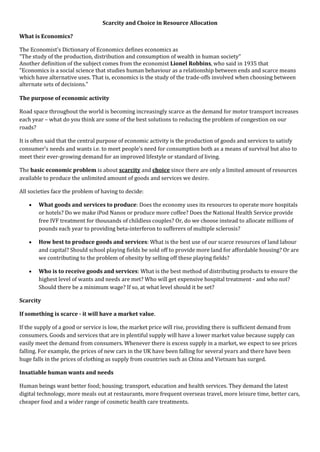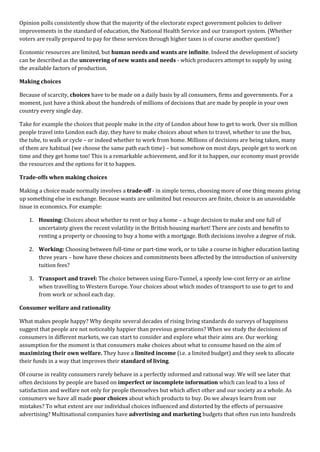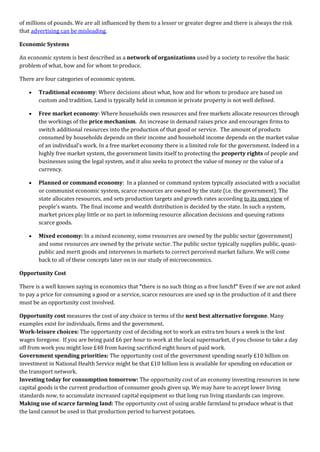The document discusses the basic economic problem of scarcity and choice in resource allocation. It explains that resources are limited but human wants and needs are unlimited, so choices must constantly be made about what to produce, how to produce it, and who receives goods and services. These choices involve trade-offs, with selecting more of one thing necessarily meaning less of something else. The concept of opportunity cost, which measures the forgone benefits of the next best alternative choice, is also introduced.


